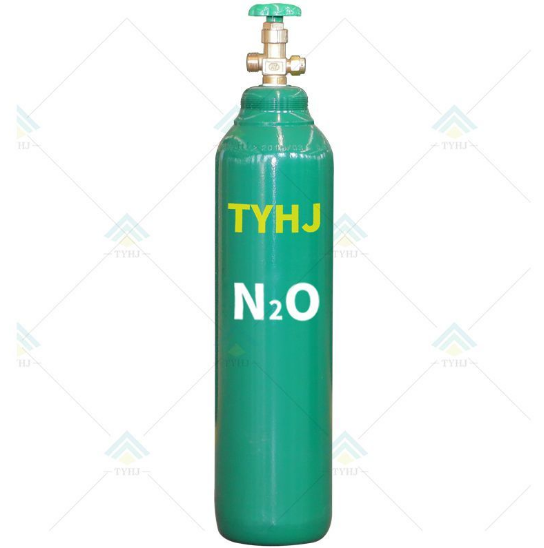What Are Specialty Gases Used for
Specialty gases, also known as high-purity gases or pure gases, are a category of gases that are used for specific applications across various industries. These gases are characterized by their high level of purity and are produced to exacting standards to ensure their suitability for their intended purposes. Specialty gases serve a wide range of applications and have become an essential component of many industries, including healthcare, manufacturing, electronics, environmental monitoring, and scientific research. In this article, we will explore the diverse uses of specialty gases, the industries they serve, and their significance in each sector.
1. Healthcare:
Specialty gases play a crucial role in the healthcare industry. They are used in various medical procedures and diagnostic applications. Some common applications include:
- Anesthesia: Specialty gases such as nitrous oxide and medical oxygen are used to administer anesthesia to patients during surgery.
- Respiratory Therapy: Medical oxygen is essential for patients with respiratory conditions, and it's often used in both clinical settings and at home.
- Calibration Gases: Precision mixtures of gases are used to calibrate medical equipment, including blood gas analyzers and ventilators.
- Cryopreservation: Liquid nitrogen and carbon dioxide are used in cryopreservation to store biological samples, tissues, and organs at extremely low temperatures.
2. Manufacturing:
In the manufacturing industry, specialty gases serve various purposes to ensure product quality, safety, and efficiency. Some key applications include:
- Welding and Cutting: Gases like acetylene, argon, and helium are used for welding and cutting metals with precision and control.
- Heat Treatment: Special atmospheres created by gases like nitrogen, hydrogen, and argon are used in heat treatment processes to harden and strengthen materials.
- Semiconductor Manufacturing: Ultra-high purity gases are essential for semiconductor fabrication, ensuring the quality and performance of electronic components.
- Environmental Testing: Specialty gases are used to simulate environmental conditions for product testing, such as accelerated aging tests for automotive components.
3. Electronics:
The electronics industry relies heavily on specialty gases for semiconductor production, electronics assembly, and other applications. The high purity of these gases is critical to avoid contamination and defects in electronic components, including microchips and printed circuit boards.
- Etching and Cleaning: Gases like fluorine, chlorine, and sulfur hexafluoride are used in etching and cleaning processes during semiconductor manufacturing.
- Chemical Vapor Deposition (CVD): Ultra-high purity gases like silane, germane, and arsine are used in CVD processes to deposit thin films on silicon wafers.
- Ion Implantation: Boron and phosphorus gases are used for ion implantation processes to create semiconductor doping profiles.
- Gas Purging: Specialty gases are used to create controlled atmospheres for electronics manufacturing to prevent oxidation and contamination.
4. Environmental Monitoring:
Specialty gases are used for environmental monitoring and analysis, particularly in air quality and emissions testing. These applications help measure and control pollution, ensuring a safer and healthier environment.
- Gas Chromatography: High-purity carrier gases, like helium and hydrogen, are used in gas chromatography for the separation and analysis of air pollutants.
- Emission Control: Gases like ammonia, hydrogen chloride, and sulfur dioxide are used in stack emissions control to reduce harmful emissions from industrial processes.
- Indoor Air Quality: Gases such as carbon dioxide and volatile organic compounds (VOCs) are measured to assess indoor air quality in workplaces and homes.
Nitrous Oxide, N2O Specialty Gas
5. Scientific Research:
In scientific research, specialty gases are used in a wide range of applications, from spectroscopy to materials science. These applications demand precision and purity to achieve accurate and reproducible results.
- Spectroscopy: Gases are used as calibration standards in various spectroscopic techniques, such as atomic absorption spectroscopy and mass spectrometry.
- Cryogenics: Liquid helium and nitrogen are used for cooling in cryogenic research, enabling scientists to reach extremely low temperatures for experiments.
- Materials Analysis: High-purity gases are used to study material properties, including thermal conductivity, electrical conductivity, and more.
- Isotope Labeling: Specialty gases with specific isotopic compositions are used in tracer studies and isotope labeling for biological and chemical research.
6. Aerospace and Defense:
Specialty gases also find applications in the aerospace and defense industries, where precision and reliability are paramount.
- Rocket Propulsion: Specialty gases are used as propellants and pressurants in rocket engines for space exploration and defense applications.
- Aviation: High-purity gases like nitrogen are used in aircraft tires to enhance safety and performance.
- Underwater Breathing: Diving gas mixtures, such as nitrox and heliox, are used in underwater exploration and military diving operations.
7. Food and Beverage Industry:
In the food and beverage industry, specialty gases serve several purposes to improve product quality and extend shelf life.
- Food Packaging: Modified atmosphere packaging (MAP) uses specialty gases to extend the freshness of packaged foods.
- Beverage Carbonation: Carbon dioxide is used to carbonate soft drinks and sparkling water.
- Freezing and Cooling: Liquid nitrogen and carbon dioxide are used for freezing and chilling food products.
8. Automotive Industry:
Specialty gases play a role in automotive applications, from manufacturing to emissions control.
- Welding: Precision welding using specialty gases ensures the integrity of automotive components.
- Airbag Inflation: Specialty gases like argon are used to inflate airbags for passenger safety.
- Emissions Control: Gases such as nitrogen oxide (NOx) and oxygen sensors are used in emissions control systems to reduce pollution from vehicles.
9. Energy and Power Generation:
Specialty gases have applications in energy production and power generation.
- Gas Turbines: High-purity hydrogen is used as a coolant and fuel in gas turbine generators.
- Nuclear Power: Specialty gases are used in nuclear power plants for reactor cooling and control.
- Solar Energy: High-purity gases are used in the production of photovoltaic cells and solar panels.
10. Calibration and Instrumentation:
Specialty gases are used in laboratories and industries to calibrate and maintain various instruments and sensors.
- Gas Detectors: Specialty gases are used to calibrate gas detectors to ensure accurate measurements of hazardous gases.
- Flowmeters: Calibration gases are used to verify the accuracy of flow measurement devices.
- Pressure Gauges: Gases are used to calibrate pressure gauges and transducers.
Conclusion
Specialty gases are versatile and indispensable in a wide range of industries. They enable precision, quality control, and safety across various applications, from healthcare to aerospace, and from electronics to food production. The high purity and stringent quality standards of these gases make them essential for meeting the specific requirements of each industry they serve. As technology and industry continue to advance, the demand for specialty gases will likely continue to grow, driving further innovations in their production and application.


